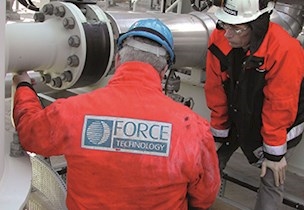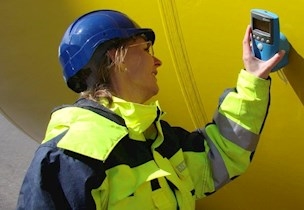Organisation and planning of operation and maintenance procedures
Avoid downtime and unexpected repair by organising and planning your maintenance. Thus you can avoid unnecessary expense and annoyance.
Is prevention better than cure?
The fundamental idea behind organised and planned maintenance is that prevention is better than cure. Regardless of whether it is a building, a ship’s engine, special equipment or a production plant all will all be worn and wear over time. By assessing the status of your installation or plant and planning an optimal maintenance regime accordingly you can minimise the overall cost.There are several good reasons for working with planned maintenance:
- At breakdowns, consequential damage often occurs on other parts, and this increases the extent and cost of repair
- Focus on safety issues – to avoid personal injury
- Productivity loss at breakdowns is often highly significant
- Worn parts may gradually entail rising energy consumption or product integrity issues.
- Filter or oil change at the right time so that detritus does not increase wear
- Repair of paint and other corrosion protection before the metal beneath corrodes
- Replacement of wearing parts at the appropriate time
- Selected ”hot spares” in store. This is updated with use.
- Small adjustments to be performed on a daily basis – this could be based on a check list
- Inspection or monitoring of the equipment condition – where should repair/replacement take place. Is replacement required immediately, or for how long can you wait before making the next repairs?
- Continuous optimisation of the maintenance plan which is based on experience.
Organisation of planned maintenance
To benefit best possibly from your planning, it is crucial that you consider the organising.For instance, you have to consider the following:
- Risk assessment – define the critical elements
- Determination of which components can be run to failure without an operational consequence
- Maintenance to be based on operation time, on inspection and on the supplier’s recommendations as deemed most suitable
- Decide which data shall be logged for the identification of the optimal time for replacement of components.
- Define which components are subject to legislative requirements and formulate compliant inspection intervals.
- Decide on who shall perform the inspection, and define the special skills required
- Formulate an alternative maintenance plan at an optimal production time
- Consider appropriate technical procedures that may give a timely warning of the condition.
Professional consultancy and cooperation
In order to optimise your maintenance procedures and minimise expense, FORCE Technology has many years of experience in both organisation and planning of maintenance and performing inspections.
We have specialists in most fields who can support your plant with state-of-the-art equipment, test facilities and laboratories, and can operate all over the world with short notice.
Regardless whether it is on land, sea or air, we can help you assure optimal operation conditions.
Contact us, and let us talk about your possibilities of optimisation.



